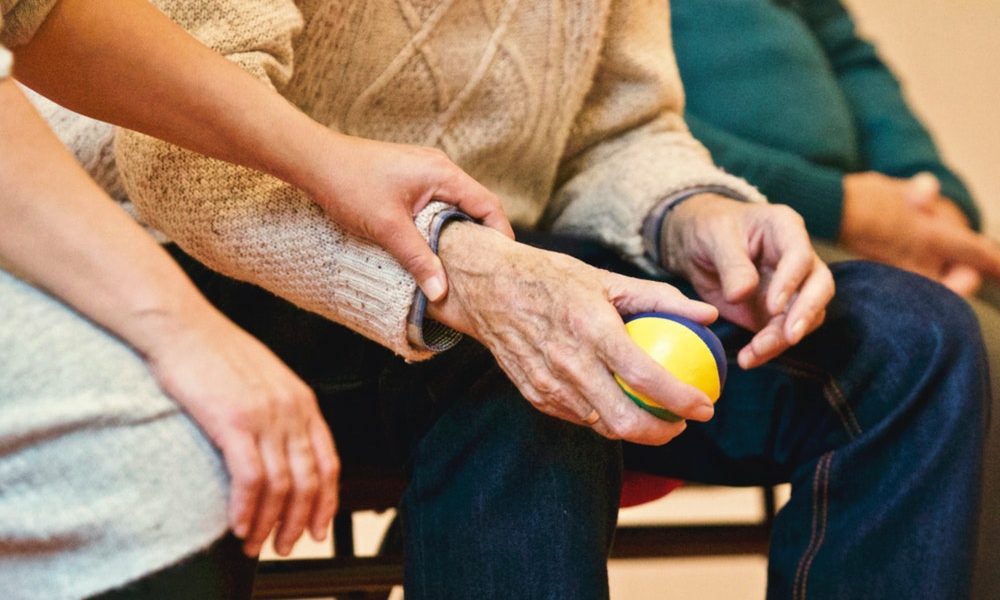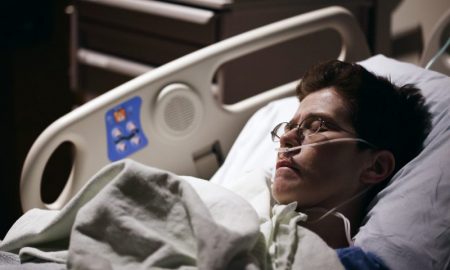
Emotional Support For Postmenopausal Osteoporosis

Hearing from your doctor that you’ve been diagnosed with postmenopausal osteoporosis can be devastating! The pain and the struggles of daily life can be disheartening! It is not only a sign of aging but a constant reminder that your body needs help and you cannot solely rely on your diet anymore. However, you are not alone in the fight against postmenopausal osteoporosis; there are around 8 million women in the United States of America. Despite being one of the most common diseases that occur in older women, this disease does not get enough attention nor does the patients get proper guidance on how to deal with it and manage their daily tasks.

Italo/Pexels | Though difficult, postmenopausal osteoporosis does not mean affected women can’t live a long and healthy life
What Is Postmenopausal Osteoporosis (PO)?
Before jumping into the details surrounding emotional support for this disease, you need to understand what postmenopausal Osteoporosis exactly is in the first place. Women who deal with menopause are vulnerable to developing primary osteoporosis since there is a significant connection to estrogen deficiency. During the menopausal transition phase, the gradual drop in the levels of estrogen results in bone resorption rather than formation, which eventually leads to osteoporotic fractures. This is one of the major reasons menopause hormone therapy is considered one of the first lines of choice when it comes to preventing the disease. However, hormone therapy is only considered for women under the age of 60 who are dealing with menopause.

Jeshoots/Pexels | Women above the age of 60 have to take other medicines to treat the disease
The Lack Of Support For The PO Patients
Now that you know what PO is, it is time we discussed how to deal with it. A 2016 study in France discovered that both patients and doctors tend to trivialize the condition. Hence, this creates an obstacle in the path of finding proper support to deal with it. It is evident that the disease can change and affect your life in various profound ways, resulting in discomfort and pain. A patient suffering from postmenopausal osteoporosis might even give up on high-intensity activities to reduce the risk of developing a fracture. That is not all, mobility issues can also occur years later that can hinder independence and result in social isolation.
Emotional Support Is Important
A study conducted in 2021 discovered that women dealing with osteoporosis often complain about the lack of support from the people around them, especially emotional support. This can include educational and self-help groups that help patients understand more about the condition they are dealing with. It can also help in managing their conditions better after meeting up with other women that are dealing with the same and how they are managing their lives.

Andrea/Pexels | Emotional support can also help these women find the motivation to continue taking care of themselves and find solace in knowing that they are not alone
There are multiple Facebook groups that are working towards this cause and if you think there isn’t one in your area, you can always start your own social media clique.
More in Life Hacks
-
`
This New York-Based Startup Has Cool Ways of Quitting Cigarettes, Vaping & Zyn
Quitting cigarettes, vaping, and Zyn has always felt clinical, awkward, and kind of lame. But Jones, a New York-based startup, is...
July 18, 2025 -
`
Inside Gwen Stefani’s Life With Her “Greatest Love” Blake Shelton
Gwen Stefani kicked off Blake Shelton’s 49th birthday in the most personal way possible. On June 18, 2025, she shared a...
July 11, 2025 -
`
What Is the Science Behind Out-of-Body Experiences (OBEs)?
Out-of-body experiences, or OBEs, sound like science fiction. But they are real, at least to those who experience them. OBEs involve...
July 5, 2025 -
`
Why Will Smith Regrets Rejecting a Starring Role in “Inception”
Will Smith once passed on a role that would go on to define sci-fi cinema. In a rare moment of honesty,...
June 29, 2025 -
`
5 Things Millionaires Are Doing With Their Money in 2025
Money doesn’t sit still when you are rich. Millionaires don’t hoard it, they grow it. Every dollar has a job to...
June 21, 2025 -
`
‘Living Room Kid’ vs. ‘Bedroom Kid’: The Difference & Parenting Tips
Parenting means learning the little clues that show how your child feels. One major clue? Where your kid spends most of...
June 13, 2025 -
`
5 Ways Morning Meditation Can Boost Your Mental Health
Morning meditation is backed by science and proven to make your brain and body feel better. Right after you wake up,...
June 8, 2025 -
`
Top 10 Best-Dressed Celebs at the 2025 Cannes Film Festival
The 2025 Cannes Film Festival is turning up the glam, but not without surprises. Just a day before the premieres began,...
May 30, 2025 -
`
Warren Buffett Shares Key Investment Lessons at the 2025 Berkshire Shareholder Meeting
Warren Buffett walked into the 2025 Berkshire Hathaway Shareholder Meeting with the same calm he has carried through decades of market...
May 23, 2025















You must be logged in to post a comment Login